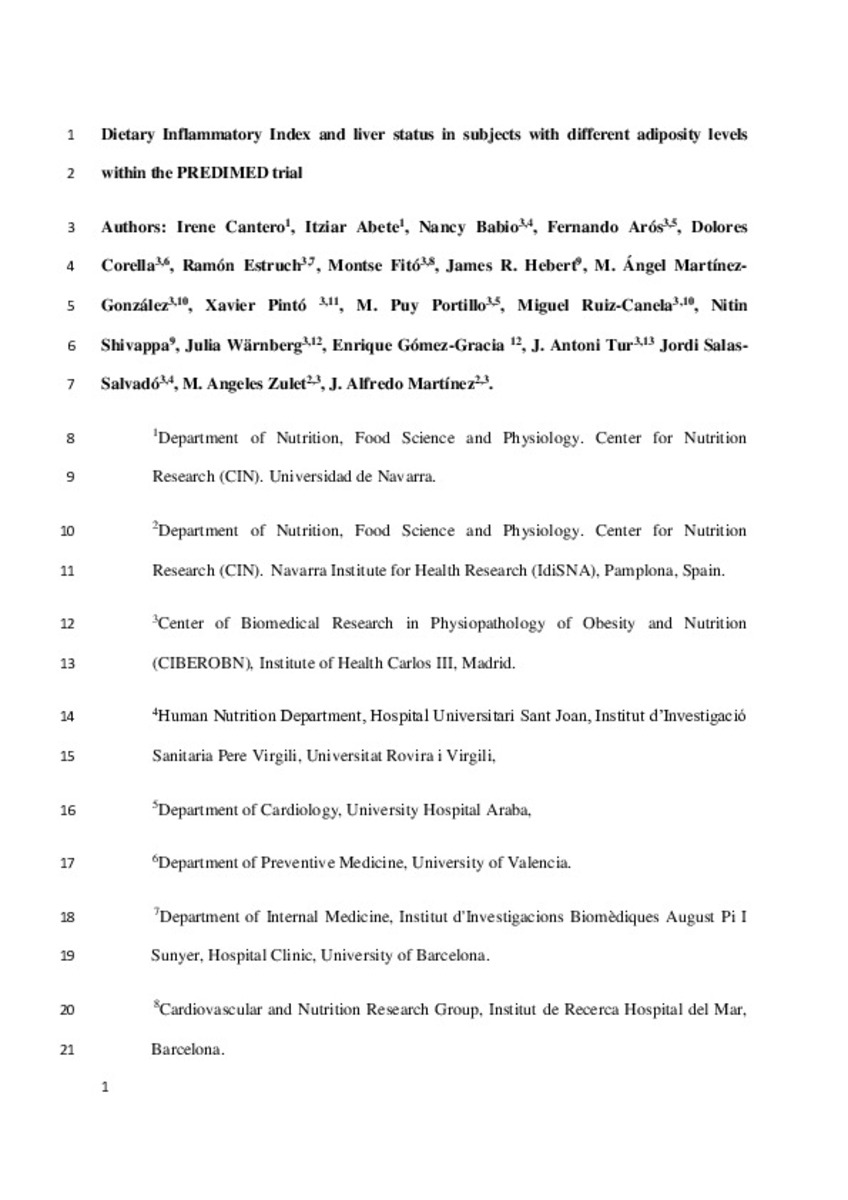Dietary Inflammatory Index and liver status in subjects with different adiposity levels within the PREDIMED trial
Keywords:
Liver
Diet
Inflammation
NAFLD
Obesity
Citation:
Cantero-González, I. (Irene); Abete, I. (Itziar); Babio, N. (Nancy); et al. "Dietary Inflammatory Index and liver status in subjects with different adiposity levels within the PREDIMED trial". Clinical nutrition. 37 (2018), 2018, 1736 - 1743
Statistics and impact
0 citas en

0 citas en

Items in Dadun are protected by copyright, with all rights reserved, unless otherwise indicated.








